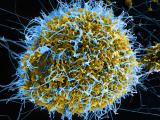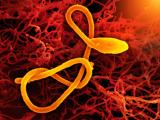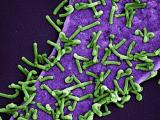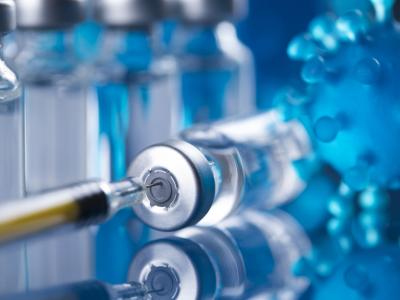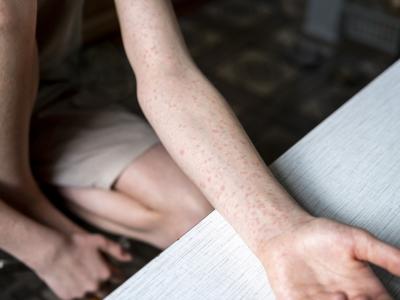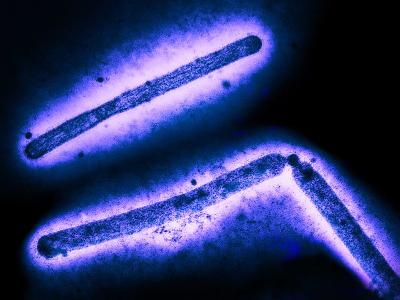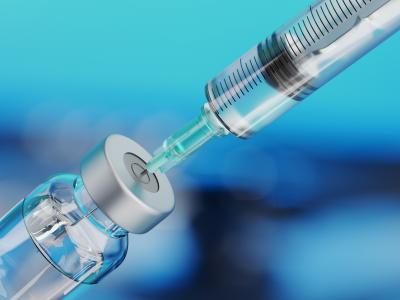The Ebola virus threat to health workers and international responders in West Africa saw no letup today, with news of the US Centers for Disease Control and Prevention (CDC) returning one of its deployed staff members after contact with a patient and Canada pulling a lab team after infections were detected at their hotel.
CDC Director Tom Frieden, MD, MPH, is in West Africa this week getting a first-hand look at the steep challenges the affected countries and international health responders face. In Monrovia, Liberia, today he told CNN that the outbreak is worse than he feared. He said each day the outbreak continues increases the threat of exporting the disease to other countries.
"The sooner the world comes together to help Liberia and West Africans, the safer it will be," Frieden told CNN.
CDC staffer had low-risk exposure
In a statement today the CDC said it brought an employee back on a charter jet following low-risk contact with an international health worker who recently tested positive for Ebola virus disease (EVD). The CDC staff member worked within 3 feet of and in the same room with the infected health worker for a prolonged period when the international worker was symptomatic and capable of spreading the virus to others.
The CDC said its staffer practiced good personal infection control. The individual is not sick, does not have any disease symptoms, and does not pose a threat to others. Also, the CDC said the staff member is rotating back to the United States, as scheduled, from the assignment in West Africa.
The agency said it is handling the case based on its interim guidance for monitoring and moving people who have been exposed to the Ebola virus, which stipulates that contacts can travel long distances only by private means during a 21-day interval after last contact.
The restriction addresses the possibility that a person could start having symptoms during travel and ensures that individuals would have quick access to care if they had symptoms. The CDC also recommends that travelers who have visited Sierra Leone, Guinea, or Liberia monitor their health for 21 days and seek medical care if they start experiencing EVD symptoms during that time.
Once the CDC staffer returns to the United States, he or she will not be on home restriction and could return to duties at the CDC during the 21-day symptom monitoring period, the group said.
Canada pulls lab team from Sierra Leone field unit
In a related development, the Public Health Agency of Canada (PHAC) said yesterday that it has recalled a three-member mobile lab team that worked a field unit with a World Health Organization (WHO) employee who was recently infected with EVD, according to a Canadian Press report today. The PHAC also said people at a hotel complex where the Canadian lab team was staying were diagnosed with EVD.
The PHAC said the Canadian lab workers are not sick but will be in voluntary isolation during their flight home and after they return to Canada.
The WHO said yesterday that it was pulling its staff from a unit in Sierra Leone's Kailahun district after one of its deployed workers, a Senegalese epidemiologist, was sickened by EVD. It also announced that it would send another team to the area to review how the worker was infected. The field site is located in a part of West Africa that has been called one of the outbreak's most intense hot spots.
Christy Feig, WHO director of communications, told the Canadian Press that the unit where the epidemiologist and the Canadian lab team were working did not treat patients but rather supported operations at a nearby treatment center run by Doctors Without Borders.
ZMapp for one evacuated health worker
The Senagalese WHO worker, who was affiliated with the Global Outbreak Alert and Response Network (GOARN), was flown to Germany last night and is being treated today at a hospital in Hamburg, the University Medical Center Hamburg-Eppendorf, CBS News reported today. The city is home to the Bernhard-Nocht Clinic for Tropical Medicine.
Ansgar Lohse, MD, the hospital's internal medicine director, said the Hamburg area has expertise in caring for tropical diseases, which swayed the decision to treat the man at one of the city's hospitals.
Another doctor at the hospital who is helping coordinate the patient's treatment, Stefan Schmiedel, MD, said the clinic would not be using the experimental drug ZMapp, which was been given to some medical workers, including two Americans who were infected with EVD and have since recovered, according to the CBS report. He indicated that the supply of ZMapp has been depleted and that the patient's treatment will focus on supportive care, including fever reduction and fluid management.
However, Royal Free London, where a British nurse is being treated after being infected in Sierra Leone, said the man has decided after careful consideration that he would like to take the experimental drug ZMapp and took the first dose on Aug 25. The hospital said in a press release yesterday that the patient, William Pooley, is in good spirits and is sitting up and talking to his caretakers.
Mike Jacobs, MD, an infectious disease consultant at the hospital, said in the statement, "We are giving him the very best care possible. However, the next few days will be crucial. The disease has a variable course and we will know much more in a week's time."
See also:
Aug 27 CNN report
Aug 27 CDC statement
Aug 27 Canadian Press story
Aug 26 CIDRAP News story "WHO pulls Ebola team, probes site of staffer's infection"
Aug 27 CBS News story
Aug 26 Royal Free London press release




